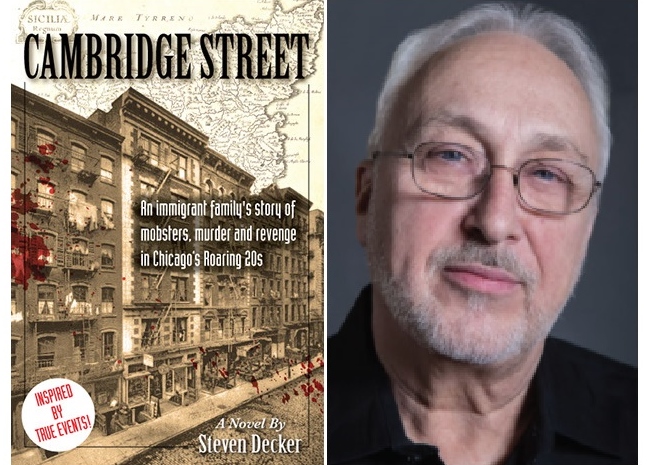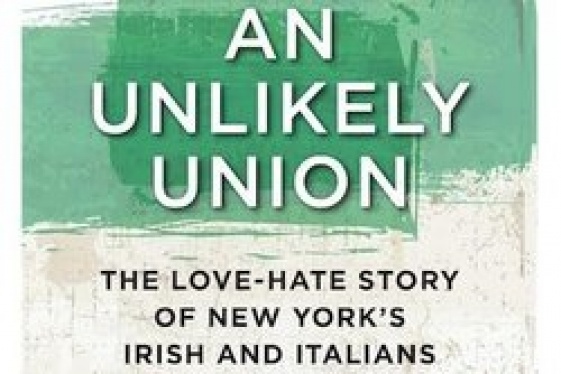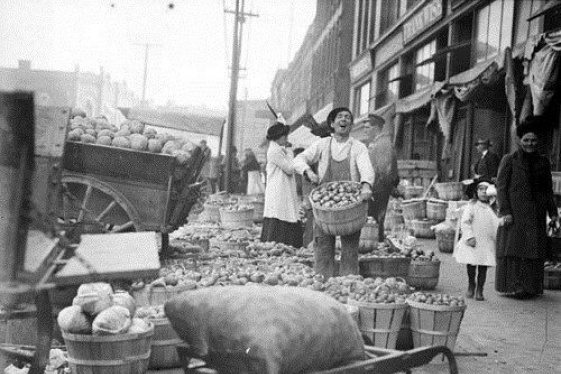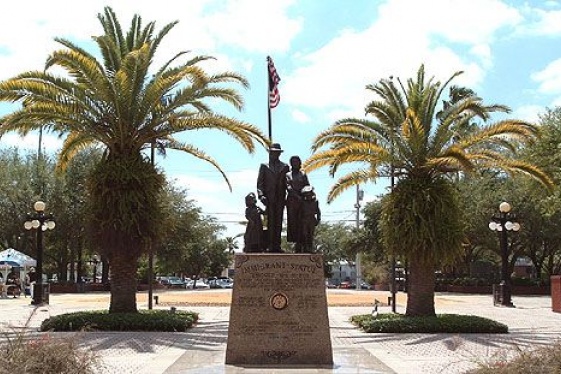

BY: Steven Decker
As an author, I’ve had the good fortune to meet hundreds of Italian –Americans at book signings in and around Chicago. It is always my great pleasure to sign books and to chat a bit with purchasers. Comments I most often heard from my customers were something like these: “I should write a book about my ancestors” or “I can tell you a story about my grandparents.”
Being interested in the topic of Italian immigration, especially from a century ago, I always listened to and enjoyed their tales. Most of the stories I heard were about the hardships and struggles that faced their ancestors, how they survived, and the occasional mobster yarn.
Because the heroism and sacrifice of our preceding generation is in danger of being forgotten, I always encouraged my book buyers to relate their memories to their children and grandchildren. We, they, and you – all of us – need to tell the tales to insure that the great accomplishment of our ancestors will be remembered and passed down to future generations.
This is not to say that the only nationality that had a tough time was the Italians. The opposite is true: the Irish, the Germans, the Swedes and practically all ethnic groups struggled. Immigration is a struggle to this day.
I chose to write and speak about the Italian immigration experience because I am descended from Sicilian grandparents on my mother’s side. Their culture has always been in my heart and I grew up hearing stories about their experiences; some funny, some sad, some tragic.
Since I started researching and writing, my fear has become that the bravery and the struggle of Italian immigrants from a century ago will be forgotten simply because their stories are not being told. Instead of understanding who the real heroes were, too many people today think of Italian immigrants and Italian-Americans as gangsters and thugs because that’s the story too often presented by Hollywood.
Thankfully, that’s not entirely true. Hollywood, over the years, has produced many great movies about Italians and Italian -Americans. These are excellent films like Moonstruck, 29th Street, Marty, Big Night, Everybody Wants to Be Italian and many others.
But while the film industry has produced some wonderful movies, it has chosen more to glamorize Italian and Italian –American thugs and criminals, making them into nearly folk heroes. Think of the three Godfather movies, Casino, Goodfellas, The Sopranos, The Irishman, Bronx Tale and many more.
Now let’s face it: we all love gangster movies, but the untold story – which is the amazing and true history of the Italy - to - America immigration experience - is really the story that cries out to be told.
Put yourself in immigrant shoes: Leaving your homeland and the people you love, grandparents saying goodbye to their grandbabies, knowing they will never see them again, and fathers, mothers, sons and daughters parting forever. It is unthinkable – and yet millions of families did exactly that.
It’s hard to understand how the new arrivals succeeded, especially since most of them came here with little money, did not speak the language, faced enormous prejudice, and got little or no police protection or other social services.
Making their transition to this country even more difficult, the period of time preceding and going into the 1920s was an era of enormous social upheaval, racism, and change in the U.S.
- In 1918 and 1919, a million soldiers came home from World War One and took the jobs, leaving only scraps for immigrants.
- Thirty eight people were killed in race riots in Chicago in 1919.
- Two hundred African-Americans were murdered in Oklahoma in 1921
- Between 1917 and 1920, the Spanish Flu killed 675,000 Americans.
- In 1919, The Volstead Act, also known as Prohibition, banning the manufacture, transport and sales of liquor became the law of the land, spawning dozen of violent criminal enterprises.
- In August, 1920, American women finally got the right to vote. With that, came a sense of rebirth and freedom which fundamentally changed the U.S.
- In an incredibly racist move, in 1924 our Congress passed The Immigration Act, a law enacted mostly to stop Italians from coming to the country. It reduced immigration by 90%.
Institutional prejudice against Italians, especially those from southern Italy, was rampant. Jobs ads often specified “No Italians Hired.” Italian immigrants were often victimized by their own countrymen. Gangs like The Black Hand, the mafia and Capone’s Outfit in Chicago would ruthlessly steal, extort, and beat new arrivals, making their lives even more difficult.
Things were tough here. Millions of immigrants went back to Italy - but millions more stayed, believing that they would survive and with the determination and belief that their children would be Americans. Against enormous odds, they struggled and persevered. To do so, they stayed together and developed a community survival code.
First of all, Italian immigrants had an incredible belief in the strength of Family. They stayed together, loved, supported, encouraged and protected each other.
Their faith in God was powerful and undeniable. They put their trust in a higher power and supported their local churches. Mostly Catholic, they observed the Sacraments of their faith.
Immigrants brought their customs, including celebrating their holidays and their food, to their new homeland.
New arrivals to the U.S. shared their commonality and supported each other in their enclaves and neighborhoods. They bought from and sold to each other and helped their businesses to thrive.
Believing in the promise of America, immigrants encouraged their children to become educated, to speak English and to become Americans.
As a final but a vital note, the history of immigration cannot be told without saluting the women who were equal partners and were as important as the men. Without those strong, determined women, immigration would probably have failed. The women were the glue and the silent power that held families together, kept the men focused and working and insured their survival.
So yes, please tell your family stories. Write them. Record them. Make sure this generation and the ones to follow know about the bravery, sacrifice and struggle of their ancestors. They need to understand what was done by the heroic men and women who came here a century ago.
And Hollywood – it’s time for you to finally tell their story.
Chicagoan Steven Decker is the author of the popular novel Cambridge Street, which tells the story of the bravery and struggle of Italian immigrants who arrive in Chicago at the dawning of the Roaring Twenties.
You may be interested
-
“The Hill” St. Louis’ Little Italy
When the fire hydrants begin to look like Italian flags with green, red and white stripes,...
-
An Unlikely Union: The love-hate story of Ne...
Award-winning author and Brooklynite Paul Moses is back with a historic yet dazzling sto...
-
Polisena delivers address as state lawmakers...
"Italian-Americans came to our country, and state, poor and proud," Johnston Mayor Joseph...
-
The “Little Italies” of Michigan
In doing reseach for this post, I was sure that Italian immigrants found their way to Detr...
-
Ybor City – Florida’s Little Italy
"The people who had lived for centuries in Sicilian villages perched on hilltops for prote...
-
''La Gente di Mulberry Street'' presentato a...
Valsinni- Italia, terra di emigranti. Presentato a Valsinni il nuovo saggio storico di Raf...
-
'A better life': Cayuga Museum showcases Ital...
When Cayuga Museum Executive Director Eileen McHugh was approached by a group of Italian-...
-
'America: Promised Land' reveals how immigran...
The subject of immigration has always been a hot political topic in the United States. The...










